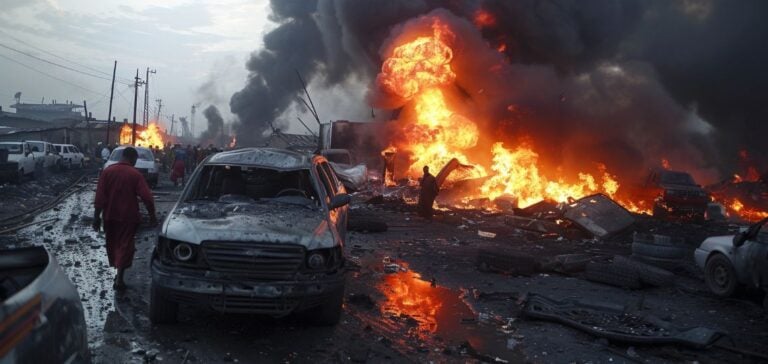On Saturday, a tanker truck carrying 60,000 liters of gasoline overturned near the Dikko junction in Nigeria’s Niger State. A crowd gathered to collect the leaking fuel when the truck exploded, killing 98 people and injuring 69 others, according to Abdullahi Baba-Arah, Director General of the Niger State Emergency Management Agency (NSEMA). The incident also destroyed 20 nearby shops.
Risks Amplified by an Economic Crisis
Nigeria, Africa’s largest oil producer, is undergoing an economic crisis exacerbated by reforms initiated in May 2023 under President Bola Ahmed Tinubu. The removal of fuel subsidies has quintupled prices, directly impacting food and transportation costs. This situation has driven some people to take significant risks to collect fuel during such accidents.
In October last year, a similar incident in Jigawa State resulted in more than 170 deaths. According to Information Minister Mohammed Idris, over 265 people have died in tanker truck explosions over the past five months.
Prevention and Calls for Awareness
In response to this recurring issue, President Tinubu has ordered a national campaign to raise public awareness of the dangers associated with collecting fuel from accident sites. Mustapha Lamorde, a representative of the Nigerian Midstream and Downstream Petroleum Regulatory Authority (NMDPRA), emphasized the urgency of educating the public to avoid future tragedies.
Poorly maintained roads, a chronic problem in Nigeria, also contribute to these disasters. In September, a collision between a tanker truck and a transport vehicle caused 59 deaths in the same region.
A Growing Humanitarian Crisis
Beyond accidents, a recent report by Nigerian officials and international organizations predicts that over 33 million Nigerians will face hunger by 2025. This projection underscores the interconnected challenges of economic pressures, failing infrastructure, and deteriorating living conditions in the country.
Local authorities, including Niger State Governor Umaru Bago, have urged citizens to prioritize their safety, but structural measures are essential to prevent such catastrophes.






















